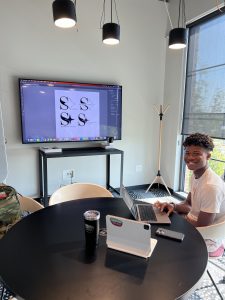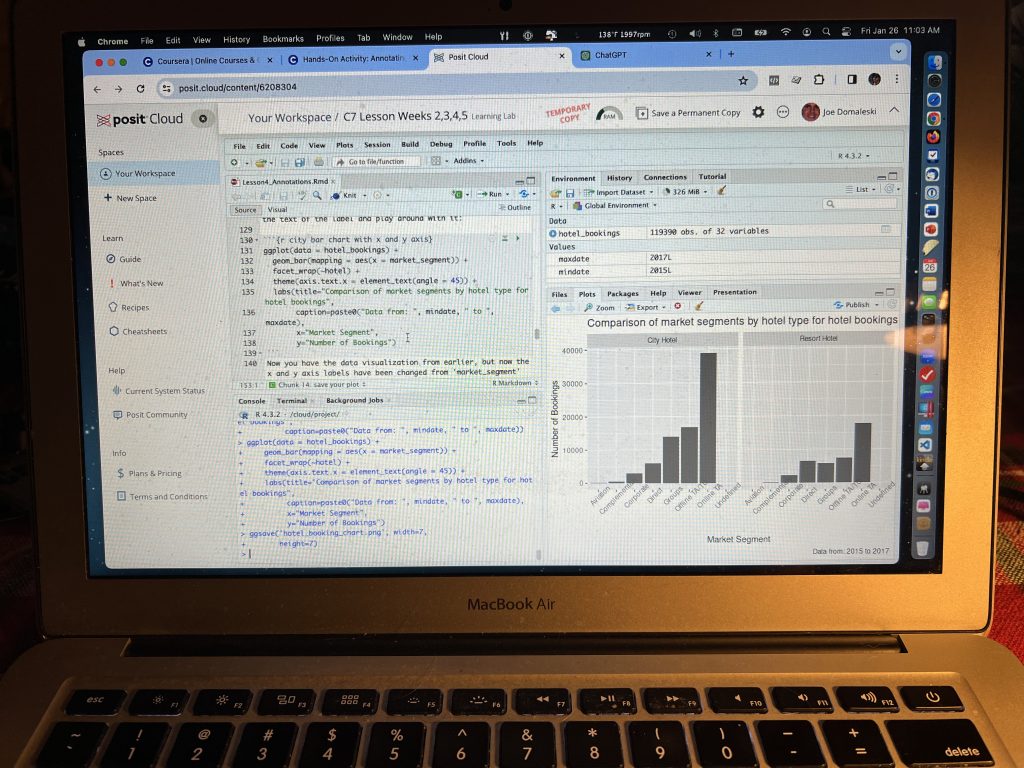Have you ever looked at a piece of art, read a great story, listened to inspiring music, or looked at a funny advertisement and thought, “That’s really creative”? Have you ever looked at a clever piece of “redneck engineering,” smiled, and thought, “That’s a creative way to solve that problem”? In many fields, except perhaps accounting, creativity is thought of as being something good. So, what is creativity, and why does it matter?
I asked some of my staff for their definitions of creativity:
“I think of creativity as a combination of imagination and knowledge.” – Hollie
“I like to think of creativity as using our minds to make something new out of what already exists.” – Erica
“I think creativity is being able to express your thoughts, ideas, and emotions be it in the way we dress, work, speak, and live our lives in a way that represents who we are and how our minds interpret those thoughts, ideas, and emotions.” – Christina
“I would define creativity as the ability to piece together aspects of different experiences to make something new and innovative.” – Zavion
“I think creativity is the ability to use your imagination to create something new and then the ability to express that thought in different mediums and formats.” – Janine (our Creative Director)

Some common themes expressed in these definitions are:
- Imagination
- New
- Ideas
- Knowledge
- Innovation
- Assembly
- Expression
- Emotion
- Thoughts
- Artistry
- Ingenuity
One of my favorite quotes about creativity comes from the late Steve Jobs, Founder and CEO of Apple:
“Creativity is just connecting things. When you ask creative people how they did something, they feel a little guilty because they didn’t really do it, they just saw something. It seemed obvious to them after a while. That’s because they were able to connect experiences they’ve had and synthesize new things. And the reason they were able to do that was that they’ve had more experiences or they have thought more about their experiences than other people. Unfortunately, that’s too rare a commodity. A lot of people in our industry haven’t had very diverse experiences. So they don’t have enough dots to connect, and they end up with very linear solutions without a broad perspective on the problem. The broader one’s understanding of the human experience, the better design we will have.” – Steve Jobs, Make Something Wonderful
In most of the definitions and themes above, creativity was associated with taking existing knowledge and applying it in new or novel ways. So, why is that important?
Creativity is not just about art, but also business. Creativity fosters progress and change. It helps us break out of ruts and sticking points to move in new directions. Creativity is often the spark that helps launch new businesses and power entrepreneurial dreams. Without creativity, we would stagnate. Here’s some specific benefits and applications of creativity.
- Personal style – Creativity allows people (and organizations) to express identity and personality through various forms, such as fashion, art, music, and communication. Creative personal expression helps people stand out in a cluttered world of sameness.
- Cultural expression – Groups of people form communities that have shared culture, beliefs, values, and heritage. Cultural expression can show up in many forms, including dress, cuisine, traditions, communication, and other things that reflect different facets of the human experience.
- Problem solving – Creative problem solving is one of my personal favorites. It allows for the consideration of unconventional means to overcome challenges and barriers.
- Learning – Creative learning helps fuel curiosity, exploration, and consideration of ideas in new ways. We all tend to learn in different ways. Applying creativity to education improves learning to help create those “a-ha moments.”
- Economic growth – Innovation leads to economic growth, and creativity leads to innovation. Building a better widget, reducing costs, solving problems, and making life easier are all hallmarks of the importance of creativity in the business world.
- Social improvement – Most social change begins with creativity. Creativity assumes there may be a better way by considering different perspectives, amplifying stifled voices, and imagining better futures.
- Resilience – Creativity helps people and societies become more adaptable to change. Overcoming adversities and challenges requires flexible thinking and looking at old things in a new light.
Creativity is what makes us human. So, what about the impact of Artificial Intelligence (AI) on creativity? There’s no doubt that AI is a powerful tool that can be used to foster creativity. I wrote about how I use AI last fall. In fact, I am currently conducting research regarding AI as it pertains to marketing management. But for all of its strengths, it has some glaring weaknesses. AI does not have our sense of perspective and experiences. AI does not have intuition or empathy. It hasn’t lived and, therefore, it can’t experience things as a human can. It doesn’t know right from wrong.

Underneath the hood, most AI is based on different types of algorithms (such as regression, decision trees, support vector machines, clustering, and neural nets) and mathematical representations of knowledge (mostly probability, statistics, linear algebra, and calculus). Is AI creative? Yes, if you accept the definitions of AI at the top of this article – AI is creative. It does have the ability to consider existing knowledge and identify new patterns to create things. Does that bother me? No. While it’s true that we live in a world defined by math and science, we have something AI does not. AI does not have a soul, and we do.
Expression, creation, and innovation based on soulful creativity is the wave of the future. It’s literally what helped us get this far as a species, and I believe it’ll serve us well as we head into an uncertain future with or without AI. Creativity is so important to me that I made that part of our company name (Country Fried Creative) years ago. Creativity is literally what keeps the world moving in a forward direction.
How do you use creativity in your personal and professional life?
[Joe Domaleski, a Fayette County resident for 25 years, is the owner of Country Fried Creative – an award-winning digital marketing agency located in Peachtree City. His company was the Fayette Chamber’s 2021 Small Business of the Year. Joe is a husband, father of three grown children, and proud Army veteran. He has an MBA from Georgia State University and enjoys sharing his perspectives drawing from thirty years of business leadership experience. Sign up for the Country Fried Creative newsletter to get marketing and business articles directly in your inbox. ]









Leave a Comment
You must be logged in to post a comment.